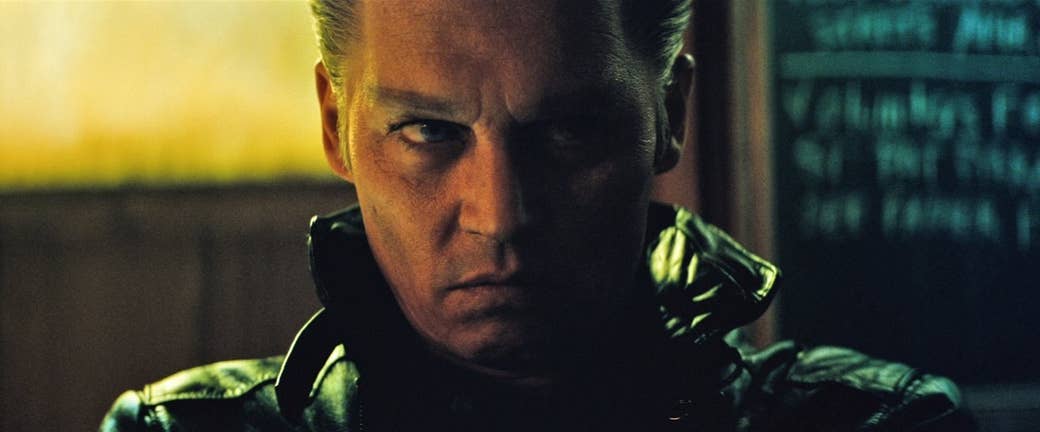
There's no way of knowing for sure how many guys have gotten into the acting business with dreams of playing a gangster, but my gut tells me it's roughly 1,000% of them. Gangster stories just occupy such a significant swath of space in that coveted territory between "classic" and "cool." The Godfather, Goodfellas, Reservoir Dogs, Scarface, and others aren't just movies people might want to watch, but ones they're told they should. The greatest of these (inevitably) men aren't just swaggering macho fantasy figures, they're complicated characters whose journeys undermine the very glamorization that makes them so alluring. The indulgent worst of them are usually at least still bad boys in good suits. Gangster may only rarely be an iconic role, but it's always a showy one.
But showy and blood-splattered isn't enough — a movie needs more to it than just a dude playing a kingpin, no matter how good he is at it. Black Mass, the new film starring Johnny Depp, and Legend, the new film starring Tom Hardy, have more in common than just being two based-on-a-true-story crime lord flicks; they're movies that seem to have all the stuff of potential greatness, including attention-grabbing central performances and source material filled with outsize misdeeds. But they're laborious and leaden, showing little grasp of what might actually be compelling about the dangerous, charismatic men they're chronicling. Even notorious criminals can be boring in the wrong hands.
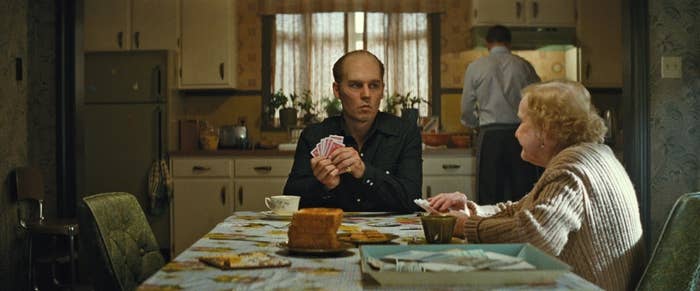
Black Mass is all about James "Whitey" Bulger, who's now living out his remaining days in prison in Florida after more than a decade on the FBI's Ten Most Wanted list, and who headed up organized crime in Boston while informing on his rivals to the FBI. Depp, who could use a rebound after a bunch of mustache-twirling roles, settles into the part of the fortysomething Whitey with an almost visible relief. His is one of the better out of a range of some seriously stagey Boston accents, though looks-wise, he's almost as theatrical as he was in Dark Shadows, especially with the vampire-light contacts.
Whitey looks like a member of the undead, but his life unfolds in enough unglamorous settings — the seedy bar in which his gang's headquartered, the surreptitious meetings at the docks, the dinners with his mother — to require Depp to keep both feet on the ground. It works well enough. While in danger of being oversold, it's certainly Depp's best and most nuanced work in years.
But Black Mass, directed by Scott Cooper (Out of the Furnace) and written by Jez Butterworth and Mark Mallouk, can't figure Whitey out. Developments that seem important come and go without their mark on the man being clear. Whitey's only child dies, and he seems sad about it, but then it's past, and the woman (Dakota Johnson) he was with heads offscreen without another mention. Whitey's time in prison as a volunteer in LSD experiments is brought up and then let slip past. Whitey's brother Billy (Benedict Cumberbatch), with whom he's close, is (amazingly) a state senator, but whether there's tension there is never explored — Billy, as much as we see him, seems unruffled by his sibling's murdering and racketeering his way around Boston.
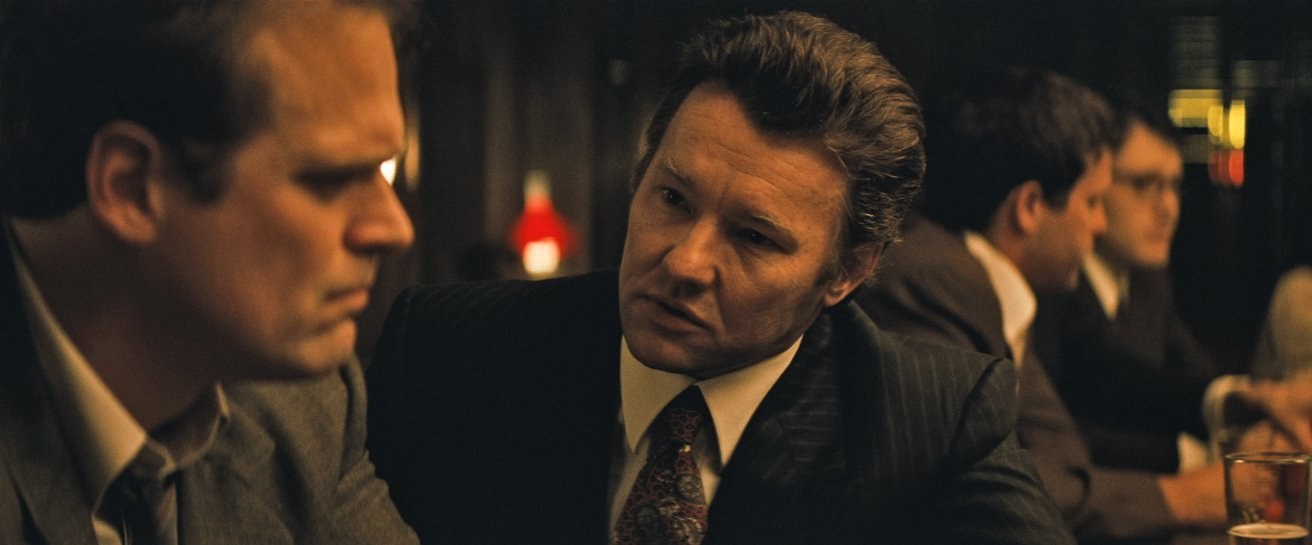
The film's most significant relationship is between Whitey and John Connolly (Joel Edgerton), who's retained a sense of hero worship of the crime lord from when they were growing up together, leading him to make some very bad decisions as a grown FBI agent. John woos Whitey, whose "no rats" decrees don't extend to his own behavior, into becoming an informant, proclaiming an "alliance" but in practice just sheltering Whitey from prosecution.
Whitey doesn't give a damn about John other than as a strategic source of information, but John basks unhealthily in his proximity to the guy. Whitey doesn't change in any significant way over the course of Black Mass — he just expands his territory. It's John who deludes and destroys himself out of toxic Southie loyalty, and it's John who really should have been the film's focus from the beginning if it weren't, like the character, too in love with the idea of its ice-blooded gangster.
Everyone falls for Legend's Ronnie and Reggie Kray, too. There's no use resisting the gangster twins who would have seemed over the top as fictional creations, but they were real people, rising up through the underworld of Swinging London while mingling with celebrities at their nightclub, attaining their own sort of infamy. They've already been the subject of one movie, with Spandau Ballet's Gary and Martin Kemp playing the identical brothers.
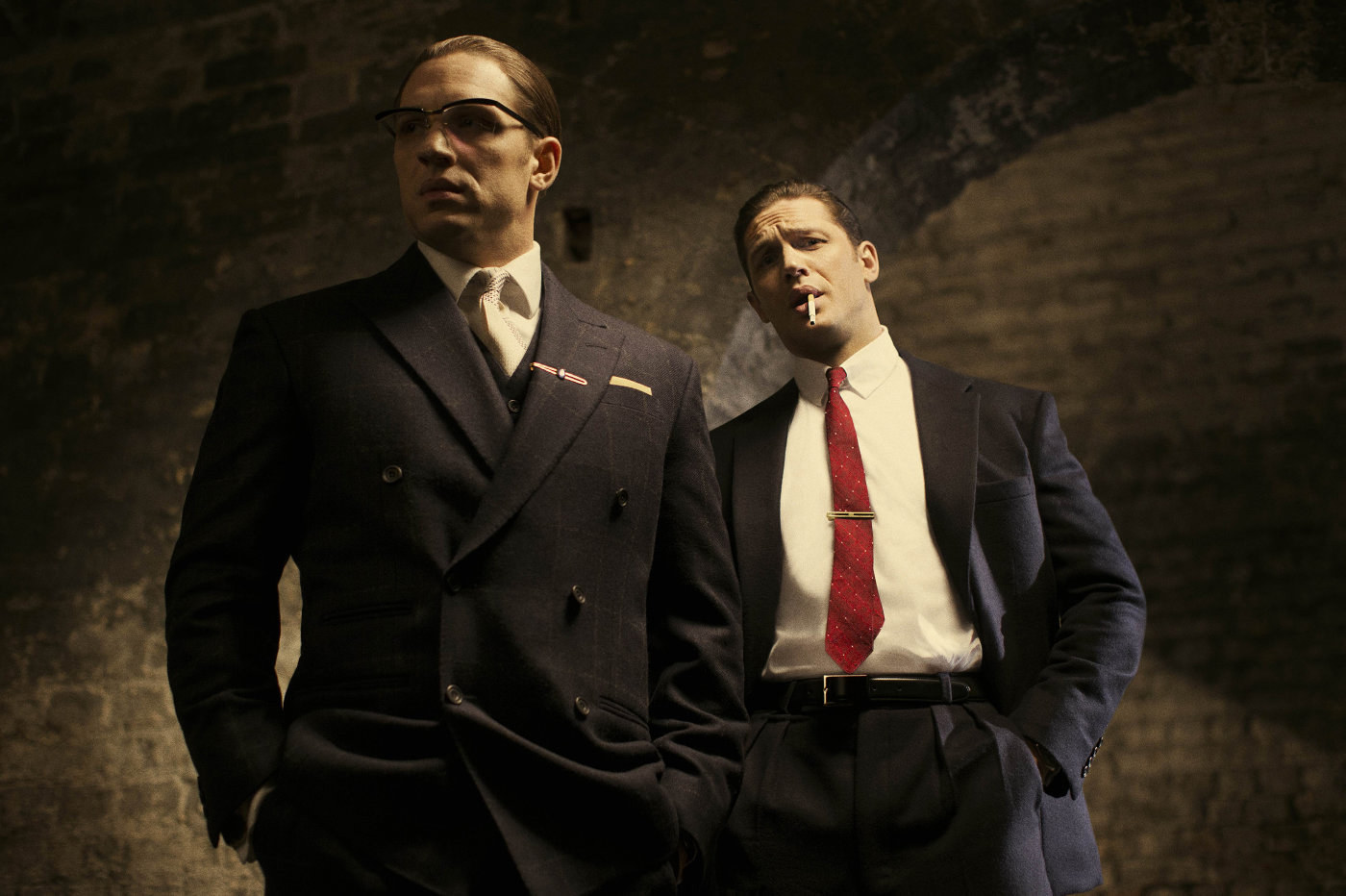
Legend, which was written and directed by Brian Helgeland (42), places all of its trust in Tom Hardy, who fills dual roles as Ronnie, a gay man with schizophrenia, and the suave, straight Reggie. For a while, his acting accomplishment is enough to marvel at by itself — he's astoundingly good. They're both Hardy, but the characters are so markedly different that that's easy to forget, even when the movie arranges for the two to fight each other. Though it seems impossible, somehow Reggie is handsome and Ronnie isn't. Reggie's the slick, outgoing one, the people person, liaising with the mafia and romancing Frances Shea (Emily Browning), the sister of one of his underlings. Ronnie has a psychotically violent streak, but also a disarmingly homebodyish air — he's someone equally poised to offer a cup of tea or smash the mug into someone's head.
Like Black Mass, Legend chooses to start with its subjects having already done their crimes and some time, and it follows them up the ladder and then back to their downfall without finding much resonance to them as people. Reggie and Ronnie are distinct beings onscreen, but we're told about their inseparability rather than shown it. Reggie toys with going straight, at Frances's urging, while Ronnie has no desire for respectability, but they never seem happier than when beating people up, which makes that conflict a little less easy to invest in. And filtering the story through wan Frances, who narrates the film, places us on the outside of the Krays' relationship. Legend makes clear in its title what it thinks of its twin subjects, but looking up at your main characters that long makes your neck start to cramp.
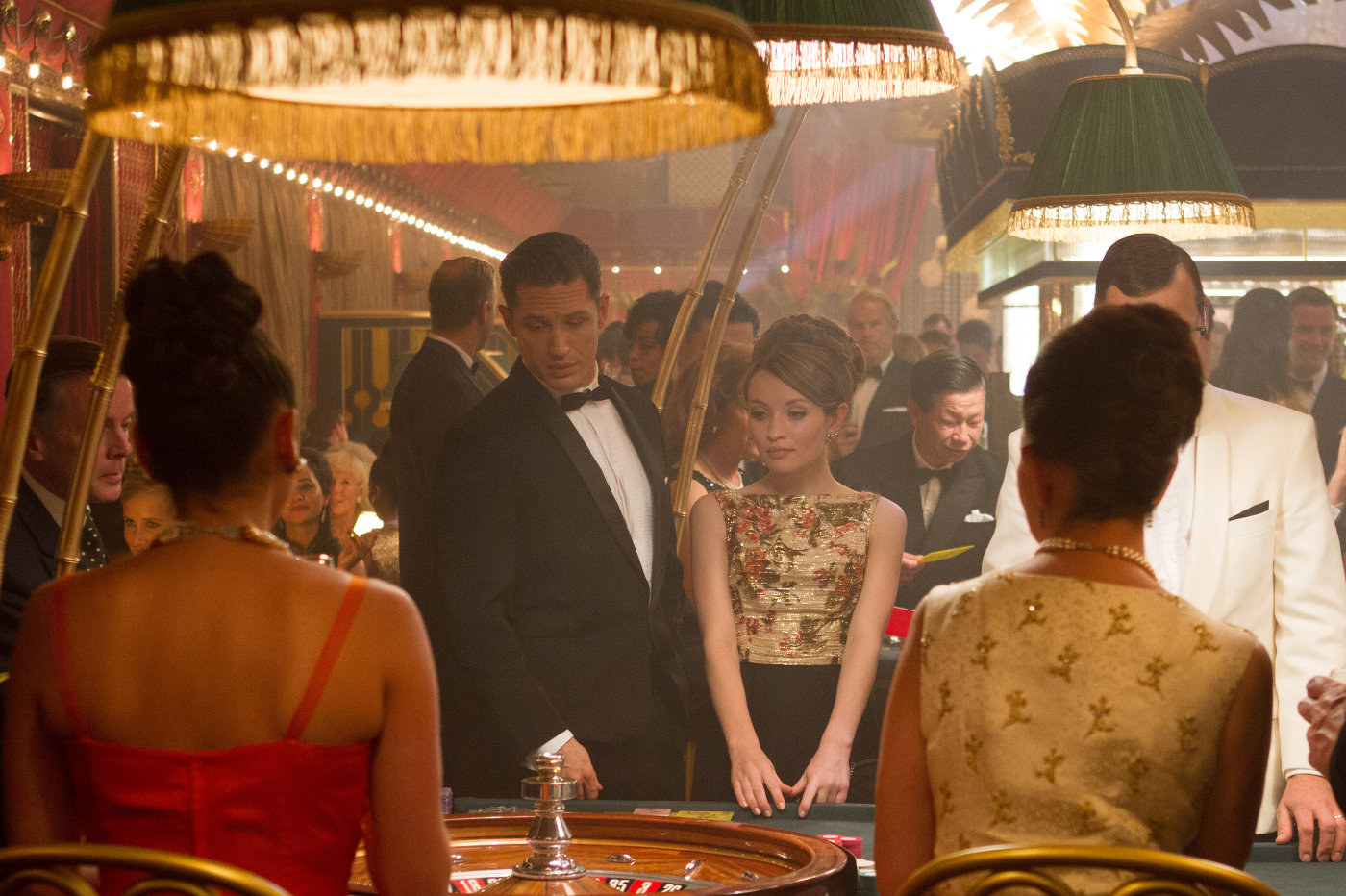
Black Mass and Legend are both about murderers who are also good mama's boys, dutifully stopping home for dinner and to be doted on. Their mobster protagonists are shown being greeted fondly as local heroes around the neighborhoods in which they grew up, though not to the cops who also follow them around. And both films feature characters drawn into and then destroyed by that crime boss allure. These movies fit neatly into the gangster genre, with all of its standard beats and actorly showboating, but they're empty inside. It's not actually that interesting, or that soulful, to watch someone go around beating the criminal world into submission if you don't know, or care, who they are.

